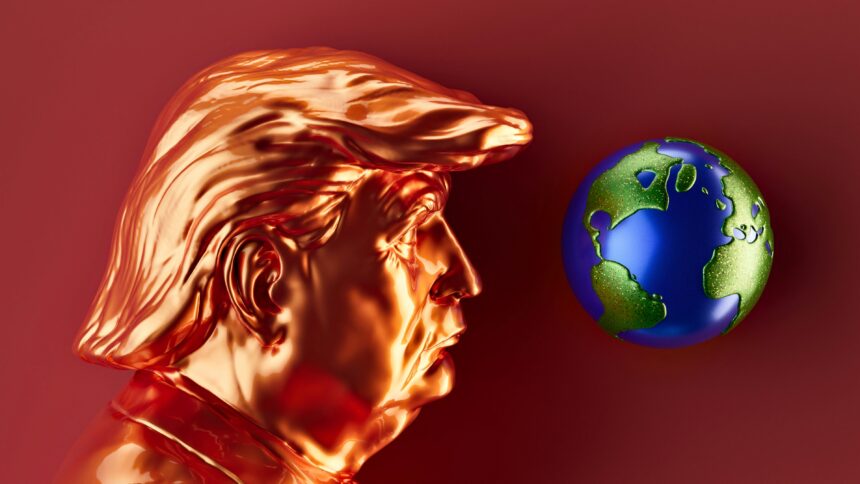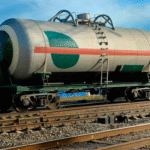Recession fears resurface as Trump’s aggressive trade tactics shake global markets
Renowned billionaire investor Ray Dalio, the founder of Bridgewater Associates and the man who predicted the 2008 financial crisis, has issued a grave warning: the United States is teetering on the brink of a recession—and possibly something more dangerous.
In a recent appearance on NBC’s Meet the Press, Dalio voiced growing concerns about President Donald Trump’s sweeping tariff policies, saying they risk destabilizing the economy if mishandled. “We are on the edge,” Dalio said, emphasizing that poorly executed tariffs could bring about an economic slowdown—or spark a deeper crisis.
“It’s like throwing rocks into the production system,” Dalio warned, describing Trump’s tariff approach as chaotic and unpredictable.
A Fragile Economy at a Critical Juncture
Trump’s tariff campaign—ostensibly aimed at boosting U.S. manufacturing and creating domestic jobs—has sent shockwaves through global markets, sparking widespread concerns about the direction of U.S. economic policy. Most notably, the administration’s latest move kept steep 145% tariffs on Chinese imports, despite a temporary 90-day pause on other reciprocal tariffs.
Although the pause provides some breathing room, analysts aren’t optimistic. Goldman Sachs recently revised its outlook, pegging the odds of a U.S. recession within the next year at 45%, down from its earlier assessment that a recession was the most likely outcome.
Dalio’s warning adds to a growing chorus of economists, investors, and financial institutions raising red flags about the potential consequences of Trump’s policies. Many argue that while the goal of trade realignment may be valid, the aggressive tactics are inflaming volatility at a time when the economy can least afford it.
Why It Matters
A recession—defined as two or more consecutive quarters of negative economic growth—could lead to mass layoffs, a drop in consumer spending, tighter credit markets, and widespread economic anxiety. If Trump’s tariff war triggers a full-blown recession, the ripple effects would be global, impacting trade, markets, and financial systems far beyond U.S. borders.
“The line between a necessary economic correction and a full-scale crisis lies in the execution,” Dalio noted, urging caution and stability.
What’s at Stake
- Consumer Costs: Higher tariffs often translate to higher prices on imported goods, affecting everyday Americans.
- Corporate Uncertainty: Companies are struggling to plan investments or supply chains amid shifting trade rules.
- Global Trade Tensions: Other nations are already retaliating or reconsidering their trade ties with the U.S.
- Investment Confidence: Markets hate uncertainty—and Trump’s tariff policy has delivered plenty of it.
A Stark Warning from a Trusted Voice
Dalio is not one to make empty predictions. In 2007 and 2008, when few saw the storm coming, he warned of systemic risks lurking in the U.S. housing and financial sectors. His firm, Bridgewater Associates, now manages over $100 billion in assets, making it one of the most influential hedge funds in the world.
The fact that someone with his track record is sounding the alarm again should be cause for reflection in Washington—and on Wall Street.
Billionaire hedge fund legend Ray Dalio has issued a dire warning about the U.S. economy, saying it is teetering on the edge of a dangerous recession—or potentially “something worse.” Speaking on NBC’s Meet the Press, Dalio, who famously predicted the 2008 financial crisis, blamed President Donald Trump’s aggressive and chaotic tariff war for severely destabilizing the economy. He described the approach as “throwing rocks into the production system,” saying such disruptions could collapse economic stability. While Trump recently paused most reciprocal tariffs, the skyrocketing China tariffs remain a major concern. Dalio’s warning adds to growing fears among experts and investors.
Conclusion
Whether or not a recession hits in the coming months, one thing is clear: the current economic strategy needs a serious recalibration. With trade policy now at the center of America’s economic future, the wrong moves could push the nation off a cliff. As Ray Dalio puts it, “It’s not just about what you do—it’s how you do it.”






